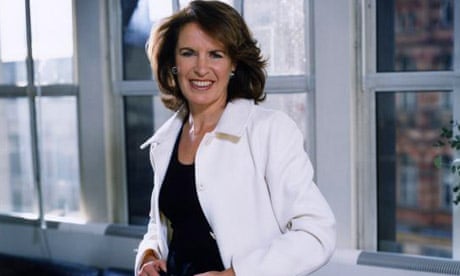A row has broken out between Boris Johnson and the government after the culture secretary blocked the appointment of one of the mayor of London's allies for a top arts job on the grounds that Johnson breached public appointment rules designed to prevent political interference.
The mayor faced charges of cronyism after he recommended Veronica Wadley, the former editor of the London Evening Standard, which championed his campaign for the mayoralty, to run the Arts Council's London branch, despite being told by the chair of the Arts Council for England, Liz Forgan, that Wadley had "almost no arts credibility".
The process was believed to have breached two of the seven principles that guard against political interference.
Johnson has warned he has no intention of backing down and is prepared to leave an empty seat at the helm of the regional body following the government veto.
The government's ruling, confirmed on Wednesday, is the latest blow to Johnson, who earlier this week saw one of his former deputy mayors receive a 12-week suspended sentence for misusing his City Hall expenses.
A spokeswoman for the Department of Culture, Media and Sport said: "The secretary of state [Ben Bradshaw] has been advised the appointment process was in clear contravention of the Nolan principles and that panel members were deeply unhappy that due process had not been followed. On that basis the secretary of state could not accept the mayor's recommendation."
Johnson's aide claimed the decision to block Wadley's appointment was "politically motivated" and maintained she was the most suitable candidate for the job.
His spokesman said the mayor had "no intention" of making another recommendation for the appointment. In a nod to the forthcoming general election and the Tories' expectation that they will form the next government, Johnson's aide said: "If he has to sit out for a new secretary of state, he will."
Johnson's aide claimed Wadley was the most suitable candidate to replace Lady Hollick, who stood down as chair last month after completing her tenure.
Wadley said: "I have been a senior executive and editor for more than 25 years and during that time have been actively engaged with all areas of the arts. For the last seven years, I chaired the Evening Standard theatre and film awards. I am not from within the arts establishment but I had hoped that my experience of running a large organisation in the private sector would be valuable to the Arts Council - and a breath of fresh air."
A source close to Bradshaw described Johnson's threat as "outrageous". "This is typical bluster from the mayor. The advice was the process he had followed in recommending a chair of the Arts Council in London was in clear breach of the Nolan principles.
"It also shows how little he cares for the artistic and cultural life of the capital that he is threatening to keep this important post vacant arrogantly assuming there will be a Conservative government after the election and he can shoehorn in his crony."
Forgan, who is also chair of the Scott Trust, the parent body that controls Guardian News and Media, wrote to Mick Elliott, the director of culture at the Department of Culture, Media and Sport, said Johnson had backed Wadley for reasons other than merit.
She said that Johnson did not follow the process and opted for a candidate "manifestly less qualified" than three other distinguished candidates.
"My conclusion is that the mayor's intended appointment is based on reasons other than selection of the best candidate for the post," wrote Forgan.
"Had the appointment been run to the standard applied to other appointments on the council, Veronica would not have been seen by the mayor."
Forgan shortlisted candidates alongside Sir David Durie, who also felt Wadley did not meet the standard required, according to Forgan's letter, and Munira Mirza, Johnson's arts adviser.
Mirza denied the correct selection process had been breached and accused Bradshaw of "political opportunism".
She said: "This is clearly a political attack. He is clearly in full partisan electioneering mode."
On Wadley, Mirza said: "There is no question about her qualifications for the job."
The Guardian understands that the Tories' culture spokesman, Ed Vaizey, intends to oust Forgan as chair of the council if he reaches ministerial office.
The Standard under Wadley's stewardship was seen as playing an instrumental role in championing Johnson during the mayoral elections, running a number of articles in the run-up to the poll that accused his opponent, Ken Livingstone, of cronyism.
The appointment for the London post involves a shortlisting process followed by final interviews led by the mayor. A recommendation is then made to the culture secretary, who has the power of veto.
Johnson told Bradshaw he decided on Wadley because she had given a "good interview", she agreed with his policy on music in schools, and she had some good ideas on private fundraising.
Johnson's office said Wadley was "one of the most successful women in British journalism, who has proved her commitment to London over many years".
"Under Veronica Wadley's stewardship the Evening Standard won a string of awards for its arts and culture coverage and she chaired the theatre and film awards for many years."
Forgan expressed "dismay" at the way details of an appointment process not yet complete had been leaked to the media and refused to comment on the row.
"We are in the middle of a process of appointment and people deserve to have their applications dealt with confidentially," she said.

Comments (…)
Sign in or create your Guardian account to join the discussion